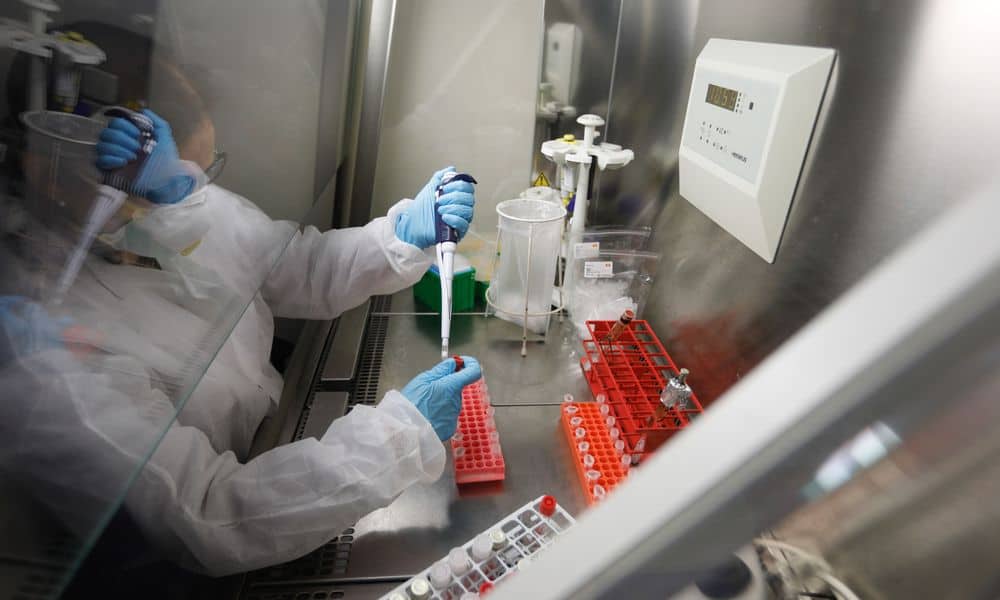
The virus that leads to the Covid-19 disease continues to mutate and adapt itself to humans, Health Ministry spokesman for the novel coronavirus Sotiris Tsiodras said on Thursday, but it is still unknown whether these mutations affect its viability.
Speaking at the daily briefing on the coronavirus pandemic in Greece, Tsiodras added the encouraging news of a one-case American study on a strain of the virus, which has shown attrition of the original genome material when the virus mutates.
"Such a mutation could weaken the virus and lead to its extinction," he stated. Despite the single case, the study was flagged as very important by the World Health Organization (WHO) in terms of coronavirus' future spread.
A similar mechanism of mutations, Tsiodras said, led to the exhaustion and eventual disappearance of the SARS virus, which belongs to the same coronavirus family, in 2003. He cautioned however that it is still too early "to assert this will also happen with the (new) coronavirus."
Commenting further on the ability of the novel coronavirus to mutate so freely, and how this led epidemiologists to trace patterns of infection, he cited a London university study in which researchers identified over 200 mutations in 7,500 coronavirus-infected people.
These observations he listed as follows:
- The great number of virus alterations happened in countries that were hardest hit by the virus, where the dispersion was greatest. "This means a significant global dispersion at the early stages of the disease," and the absence of a single locus of infection. The epidemic had multiple entry points in the populations, and there were several 'zero' patients, or primary sources of infection. In the United Kingdom, for example, "the variety of viruses identified was almost as great as that found in the entire world, which means that the virus entered the population multiple times independently, rather than spread through a single incidence."
- It has been verified that the virus first rose to prominence at the end of 2019. Therefore, Tsiodras said, "it seems impossible that it circulated among people a long time before it was first identified in humans." This, he said, provided a response to conspiracy theorists.
- It was been now confirmed that the virus will not mutate more than expected initially, "and has definitely (mutated) less than the influenza virus."
- There is no proof the virus is becoming more aggressive or virulent; this would be a false claim.
- It has become gradually confirmed that in certain areas of the world there are very few mutations of the virus. These locations should be studied further for clues to new therapies and vaccines, he noted.
Among other questions he answered by journalists, the disease specialist said that there were encouraging news about new vaccines. One of them used samples of the virus from humans on laboratory animals, which did not exhibit Covid-19 symptoms and whose lungs were found clear of the virus.
"The researchers isolated the virus from patients, inactivated it and used it as a vaccine in experimental animals such as mice and monkeys, which, after grafting them in two different doses, then infected them with different types of coronaviruses. High-dose vaccinated animals showed no symptoms and cleared the virus from the lungs. The vaccine was safe and the data supports the rapid development of a vaccine for humans."
At the daily press briefing, Tsiodras also announced 15 new confirmed cases of Covid-19 in Greece in the last 24 hours, and 1 new death.
The total Covid-19 infections in Greece stands at 2,678. Some 603 cases were infected abroad and 1,340 in Greece.
Deaths total 148 since the start of the outbreak, while 33 patients are being treated in Intensive Care Units. Another 85 people have so far been discharged from ICUs.
Some 90,043 Covid-19 diagnostic tests have been carried out in Greece since the start of the outbreak.

